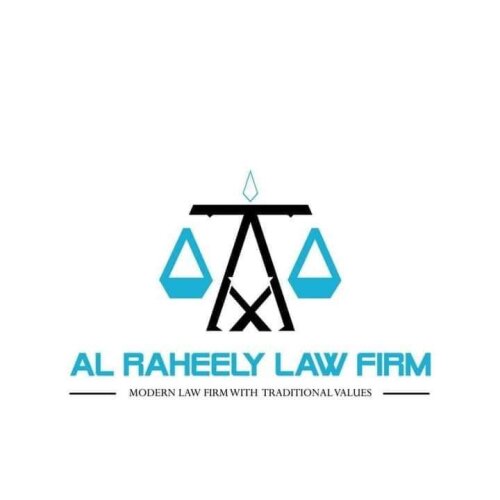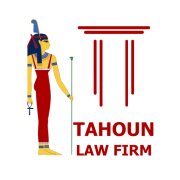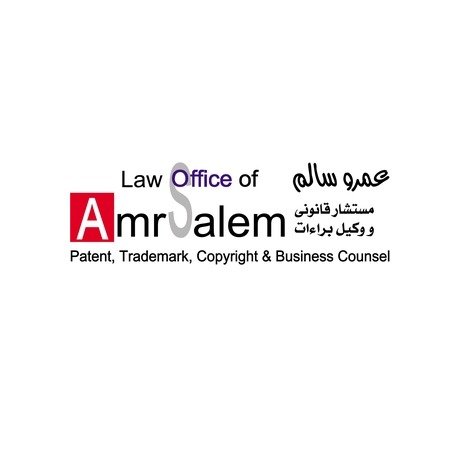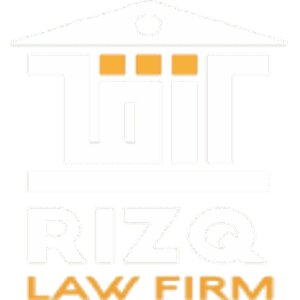Best Energy, Environment & ESG Lawyers in Egypt
Share your needs with us, get contacted by law firms.
Free. Takes 2 min.
Or refine your search by selecting a city:
List of the best lawyers in Egypt
About Energy, Environment & ESG Law in Egypt
Energy, Environment, and Environmental, Social, and Governance (ESG) laws play a significant role in Egypt’s legal landscape. As Egypt develops its energy sector, including a strong push towards renewable energy and sustainable practices, the country is also working to strengthen environmental protections and ESG compliance for businesses. These laws regulate how organizations interact with natural resources, manage environmental impacts, and operate responsibly in ways that align with global standards for sustainability and governance.
Egypt’s government has made commitments under international agreements to reduce carbon emissions, promote the use of renewable energy, and enhance environmental governance. The drive to modernize the country’s infrastructure and attract investment has also raised expectations for compliance with ESG principles, especially for companies seeking to participate in local and international markets.
Why You May Need a Lawyer
Engaging a lawyer who specializes in Energy, Environment, and ESG matters can be essential in several situations. Typical scenarios include:
- Starting or expanding an energy-focused project, such as launching a solar or wind energy plant
- Navigating the licensing and regulatory approval process for energy and environmental projects
- Ensuring compliance with new or changing environmental regulations, particularly for factories, utilities, and developers
- Managing waste, emissions, and other environmental impact controls for existing businesses
- Handling disputes or enforcement actions by government bodies
- Seeking guidance on ESG disclosure requirements and building sustainable business practices for investor or regulatory purposes
- Acquiring, merging, or financing energy projects, which may require due diligence on environmental liabilities
- Dealing with community and stakeholder engagement around large energy or infrastructure developments
The complexity and evolving nature of these laws in Egypt make professional legal advice crucial to avoid penalties, reputational damage, and business delays.
Local Laws Overview
Egypt has developed a framework of laws and regulations aimed at managing energy resources responsibly, protecting the environment, and promoting ESG standards. Some of the most relevant legal aspects include:
- Energy Law: The Electricity Law No. 87 of 2015 and the Renewable Energy Law No. 203 of 2014 set the legal framework for energy generation, distribution, and investment incentives, especially for renewable projects.
- Environmental Law: Law No. 4 of 1994 (as amended by Laws No. 9 of 2009 and No. 105 of 2015) is the cornerstone of environmental protection, governing environmental impact assessments, emissions, waste management, and hazardous materials.
- Environmental Impact Assessment (EIA): Many projects must submit an EIA as part of the licensing process, detailing the potential environmental effects and planned mitigation measures.
- Governmental Oversight: Regulatory bodies such as the Egyptian Environmental Affairs Agency (EEAA) oversee compliance with environment-related laws. The Egyptian Electricity Utility and Consumer Protection Regulatory Agency (EgyptERA) regulates the electricity sector.
- ESG Guidelines: While ESG requirements are still evolving, many public companies and those seeking international investment are expected to align with ESG standards covering environmental responsibility, social contributions, and transparent governance.
- International Agreements: Egypt ratified the Paris Agreement and is host to various international projects on renewable energy, water conservation, and emission reduction.
Frequently Asked Questions
What is an Environmental Impact Assessment and when is it required in Egypt?
An Environmental Impact Assessment (EIA) is a mandatory study that analyzes how a proposed project will affect the environment. In Egypt, most major construction and industrial projects, including energy projects, must submit an EIA as part of the government licensing process.
What are the main environmental laws that apply to businesses in Egypt?
The most critical is Law No. 4 of 1994 and its amendments, which governs environmental protection, pollution control, and waste management. Many sector-specific regulations and ministerial decrees also apply, depending on the activity.
Which agency enforces environmental regulations in Egypt?
The Egyptian Environmental Affairs Agency (EEAA) is responsible for enforcing environmental regulations, conducting inspections, and approving EIAs.
Are renewable energy projects incentivized by the Egyptian government?
Yes, Egypt provides various incentives for renewable energy investments, including feed-in tariffs, reduced tariffs on imported equipment, and simplified licensing under Renewable Energy Law No. 203 of 2014.
What are ESG requirements for companies in Egypt?
ESG requirements refer to practices relating to environmental responsibility, social contributions, and governance transparency. While not fully mandatory for all companies, Egyptian firms-especially state-owned and large listed companies-are increasingly expected to align with global ESG norms.
Can individuals or organizations be penalized for breaching environmental laws?
Yes, violations of environmental laws can result in fines, corrective orders, shutdown of operations, and, in some instances, criminal charges.
How are energy projects licensed in Egypt?
Energy projects need permits from several agencies, mainly EgyptERA for electricity and EEAA for environmental impact. Investors must submit technical, financial, and environmental documentation as part of the approval process.
What role do international agreements play in Egypt’s environmental laws?
International agreements, such as the Paris Agreement, influence Egypt’s domestic legislation by setting targets for emissions reductions, renewable energy integration, and sustainable development-obliging Egypt to enact supporting laws and implement relevant projects.
How can I ensure my business is compliant with local energy and environment laws?
It is essential to consult specialized legal counsel, stay updated on new regulations, conduct regular compliance audits, provide staff training, and engage proactively with regulatory authorities.
What steps should be taken if facing an environmental violation notice?
Promptly consult a lawyer experienced in environmental law, review the details of the violation, prepare the required documentation and defense, and cooperate with authorities to resolve the matter, which may involve remedial measures or negotiating penalties.
Additional Resources
For those seeking further information or support in Energy, Environment, and ESG matters in Egypt, consider exploring the following resources:
- Egyptian Environmental Affairs Agency (EEAA): Main government body overseeing environmental protection and EIA approvals.
- EgyptERA (Egyptian Electricity Utility and Consumer Protection Regulatory Agency): Handles licensing and regulation of the electricity sector.
- Ministry of Environment: Develops environmental policies and initiatives.
- Ministry of Electricity and Renewable Energy: Guides national energy strategy and sector development.
- Federation of Egyptian Industries: Offers guidance on ESG practices and environmental compliance for businesses.
- International Finance Corporation Egypt Office: Supports sustainable business practices and ESG integration.
Next Steps
If you require legal assistance in the fields of Energy, Environment, or ESG in Egypt, take the following steps:
- Identify the specific legal issue you are facing, such as compliance questions, regulatory requirements, or project planning.
- Gather any relevant documentation, such as business licenses, previous EIAs, or regulatory correspondence.
- Seek out a law firm or lawyer with expertise in Egyptian environmental, energy, and ESG law.
- Schedule a consultation to discuss your situation in detail and outline your goals.
- Collaborate closely with your legal advisor to address compliance, obtain necessary permits, and implement corrective measures if needed.
- Stay informed about regulatory changes and best practices for ESG in Egypt to ensure ongoing compliance and business success.
Experienced legal counsel can help you navigate this complex area, avoid unnecessary risks, and position your projects and business for sustainable growth in Egypt.
Lawzana helps you find the best lawyers and law firms in Egypt through a curated and pre-screened list of qualified legal professionals. Our platform offers rankings and detailed profiles of attorneys and law firms, allowing you to compare based on practice areas, including Energy, Environment & ESG, experience, and client feedback.
Each profile includes a description of the firm's areas of practice, client reviews, team members and partners, year of establishment, spoken languages, office locations, contact information, social media presence, and any published articles or resources. Most firms on our platform speak English and are experienced in both local and international legal matters.
Get a quote from top-rated law firms in Egypt — quickly, securely, and without unnecessary hassle.
Disclaimer:
The information provided on this page is for general informational purposes only and does not constitute legal advice. While we strive to ensure the accuracy and relevance of the content, legal information may change over time, and interpretations of the law can vary. You should always consult with a qualified legal professional for advice specific to your situation.
We disclaim all liability for actions taken or not taken based on the content of this page. If you believe any information is incorrect or outdated, please contact us, and we will review and update it where appropriate.
Browse energy, environment & esg law firms by service in Egypt
Egypt Attorneys in related practice areas.
Browse energy, environment & esg law firms by city in Egypt
Refine your search by selecting a city.
















